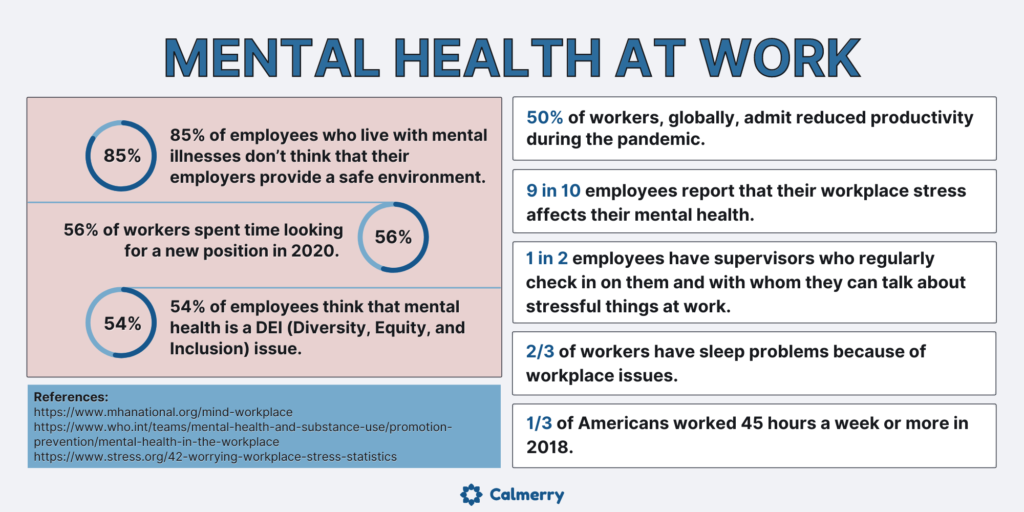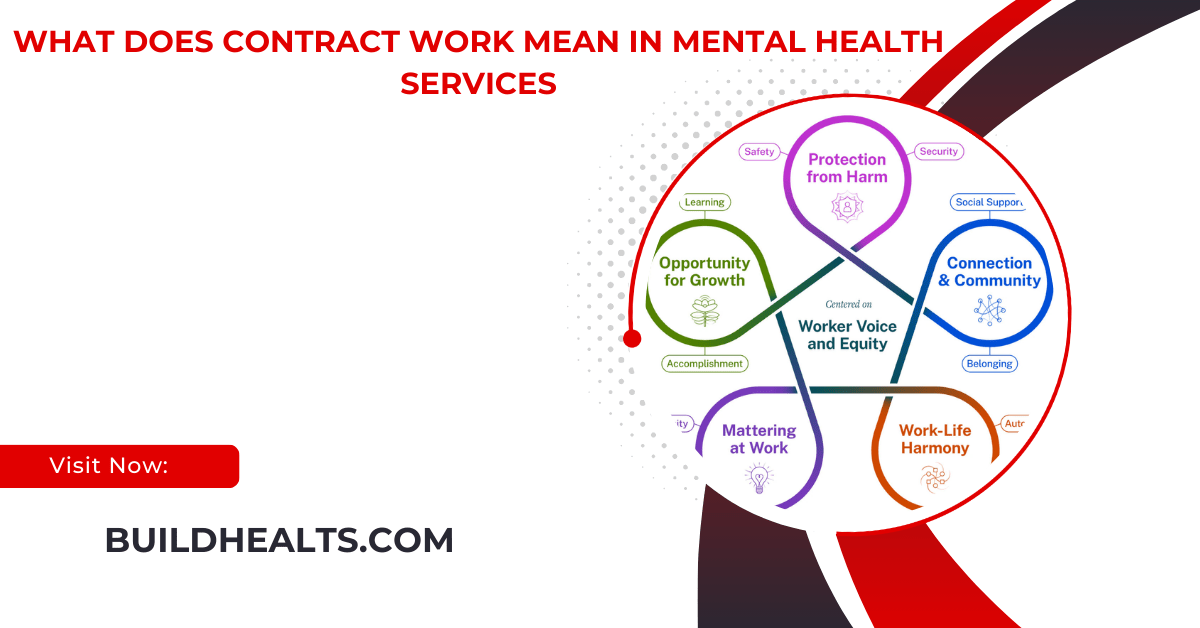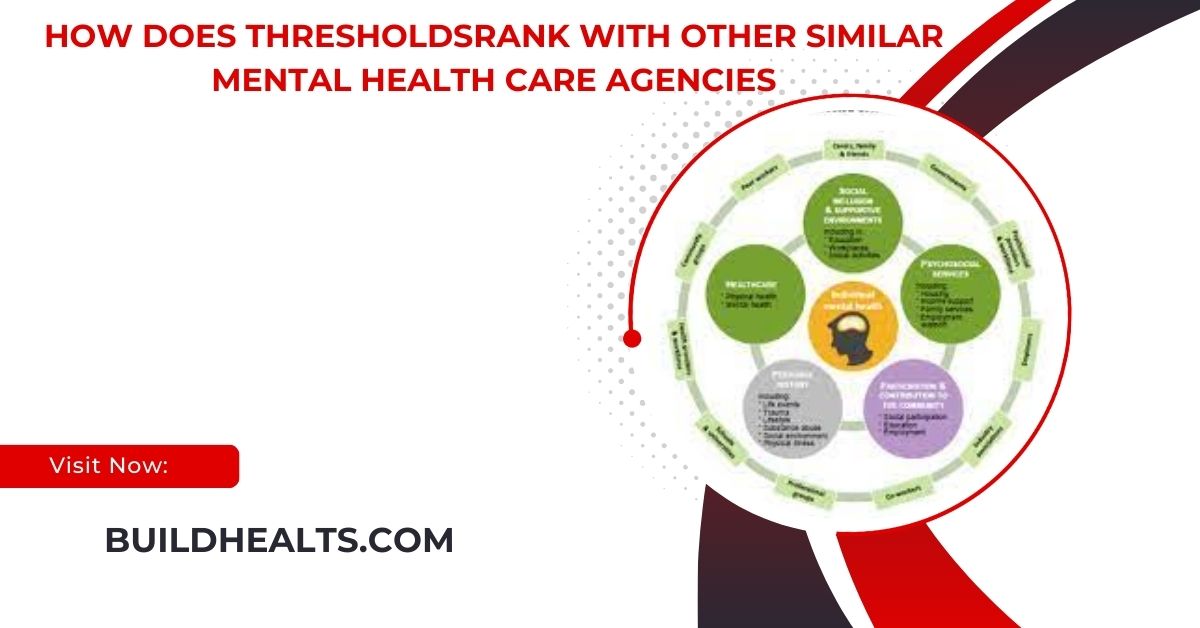Contract work in mental health services involves temporary arrangements where professionals provide specific services, enhancing flexibility and addressing staffing shortages.
Contract work in mental health services is an important concept that helps both providers and clients. Understanding what it means can clarify how mental health services operate and the role of contract workers within the system.
This article will explain the meaning of contract work in mental health services, its significance, and how it impacts clients and providers.
What is Contract Work?

Contract work refers to a type of employment where an individual or organization provides services to another party under a specific agreement. In mental health services, contract workers may be therapists, counselors, or other professionals who are hired to provide specific services for a set period or project.
Unlike full-time employees, these workers are not permanently on staff; instead, they work on a temporary basis or as needed.
Types of Contract Work:
There are several types of contract work in mental health services:
- Freelance Mental Health Professionals: These individuals may offer therapy, counseling, or assessment services independently. They typically work with multiple clients or organizations rather than being tied to one employer.
- Agency Contractors: Some professionals work through agencies that provide mental health services. These agencies hire contract workers to meet the needs of different organizations or communities.
- Consultants: Mental health consultants may work on a project basis to help organizations improve their mental health services, develop programs, or provide training to staff.
The Role of Contract Workers in Mental Health Services:
Flexibility in Service Delivery:
One of the main advantages of contract work in mental health services is flexibility. Contract workers can often adjust their schedules to meet client needs, allowing for more personalized and timely care. This is especially important in mental health, where crises can arise unexpectedly.
Access to Specialized Skills:
Contract workers often bring specialized skills and knowledge that may not be available within a permanent staff. For example, a contract psychologist might have expertise in trauma-informed care or family therapy. This allows mental health organizations to provide a wider range of services to their clients.
Filling Gaps in Staffing:
Mental health services can face challenges with staffing shortages. Contract workers help fill these gaps by providing services when full-time staff are unavailable, such as during leave or peak demand periods. This ensures that clients continue to receive the care they need.
Benefits of Contract Work in Mental Health Services:

Cost-Effectiveness:
Hiring contract workers can be cost-effective for mental health organizations. They do not incur the same benefits or payroll costs as full-time employees. This allows organizations to allocate resources more effectively, focusing on client care.
Diverse Perspectives:
Contract workers often come from various backgrounds and experiences. Their unique perspectives can enrich the mental health services provided and promote innovative approaches to treatment. This diversity can lead to more effective and tailored care for clients.
Short-Term Needs:
Many mental health organizations experience fluctuations in demand for services. Contract workers can be hired to meet short-term needs without the commitment of long-term employment. This approach helps organizations remain agile and responsive to changes in the community.
Also read: What Foods for Dogs Can Help with Liver Health – A Comprehensive Guide!
Challenges of Contract Work in Mental Health Services:
Lack of Continuity of Care:
One challenge of contract work is the potential for a lack of continuity in care. Since contract workers may only be with clients for a limited time, they might not fully understand a client’s history or needs. This can make it difficult to provide consistent and effective treatment.
Integration with Permanent Staff:
Contract workers may face challenges in integrating with permanent staff. There can be differences in work culture, communication styles, and treatment approaches. Effective collaboration is essential to ensure that clients receive comprehensive care.
Limited Benefits and Job Security:
Contract workers often do not receive the same benefits as full-time employees, such as health insurance or retirement plans. This can make contract work less appealing for some professionals. Additionally, job security can be a concern, as contracts may end or not be renewed.
How Contract Work Impacts Clients:

- Access to Services: For clients, contract work can improve access to mental health services. With more professionals available, clients may find it easier to schedule appointments and receive timely support. This is particularly beneficial in areas with limited mental health resources.
- Variety of Treatment Options: Contract workers can offer a diverse range of treatment options and therapeutic approaches. Clients can benefit from different perspectives and techniques, allowing them to find a style of care that resonates with them.
- Personalized Care: The flexibility of contract work means that mental health professionals can often tailor their services to meet the individual needs of clients. This personalized approach can lead to better outcomes and a more positive experience for clients.
Difference Between Part-Time and Contract Work:
Understanding the distinctions between part-time and contract work is crucial, especially in fields like mental health services. Here’s a breakdown of each type of employment:
Part-Time Work:
Part-time work refers to a type of employment where an individual works fewer hours than a full-time employee. The specific number of hours can vary but is generally less than 30-35 hours per week. Here are some key characteristics of part-time work:
- Employment Status: Part-time employees may be classified as regular employees and typically receive some benefits, although fewer than full-time employees.
- Scheduling: Part-time workers often have set hours, which can be consistent or variable. They may work specific days and times depending on the needs of the employer.
- Job Security: Part-time positions may offer more stability compared to contract work since they are usually ongoing roles.
Also read: What Health Issues Can Happen When Eating Push Pops – A Comprehensive Guide!
Contract Work:
Contract work, on the other hand, involves a professional arrangement where an individual is hired to perform a specific task or project for a set period. In mental health services, this can include various roles such as therapists, counselors, or consultants. Here are the main aspects of contract work:
- Defined Scope: Contract workers have a clear agreement that outlines the specific tasks, responsibilities, and duration of their work. This contract is usually formalized in writing.
- Independence: Contract workers often operate as independent professionals, meaning they have more control over their schedules and how they complete their tasks.
- Benefits: Typically, contract workers do not receive employee benefits, such as health insurance or paid time off. They may charge higher rates to compensate for this lack of benefits.
- Short-Term Engagements: Contract roles can be temporary and may last for the duration of a project or until certain deliverables are met.
Contract Work in Mental Health Services:

In the context of mental health services, contract work can take on several forms:
- Temporary Roles: Mental health professionals may be hired on a contract basis to provide services for a limited time, such as during a peak period of demand or to cover for staff shortages.
- Specialized Services: Contract workers may be brought in for their expertise in specific areas, such as trauma counseling, substance abuse treatment, or community mental health programs.
- Flexible Engagement: Organizations may use contract professionals to maintain flexibility in staffing. This allows mental health services to quickly adjust to changing needs without the long-term commitment of hiring full-time staff.
- Project-Based Work: Some mental health initiatives, such as workshops or community outreach programs, may rely on contract workers who specialize in these areas to deliver targeted services.
FAQ’s
1. What is contract work in mental health services?
Contract work in mental health services is a temporary employment arrangement where professionals like therapists and counselors are hired to provide specific services for a set period.
2. What are the types of contract work in this field?
Types include freelance mental health professionals, agency contractors, and consultants who provide specialized services or project-based support.
3. What are the benefits of contract work for clients?
Contract work can improve access to services, provide a variety of treatment options, and offer personalized care tailored to individual client needs.
4. What challenges do contract workers face in mental health services?
Challenges include lack of continuity of care, difficulties integrating with permanent staff, and limited job security and benefits compared to full-time employees.
5. How does contract work differ from part-time work in mental health?
Contract work is project-based and lacks employee benefits, while part-time work typically offers more stability and some benefits, with set hours for ongoing roles.
Conclusion
In conclusion, contract work plays a vital role in mental health services by offering flexibility and access to specialized skills while filling staffing gaps. However, challenges such as continuity of care and limited job security can impact both professionals and clients. Understanding these dynamics helps improve service delivery and client outcomes in mental health care.




